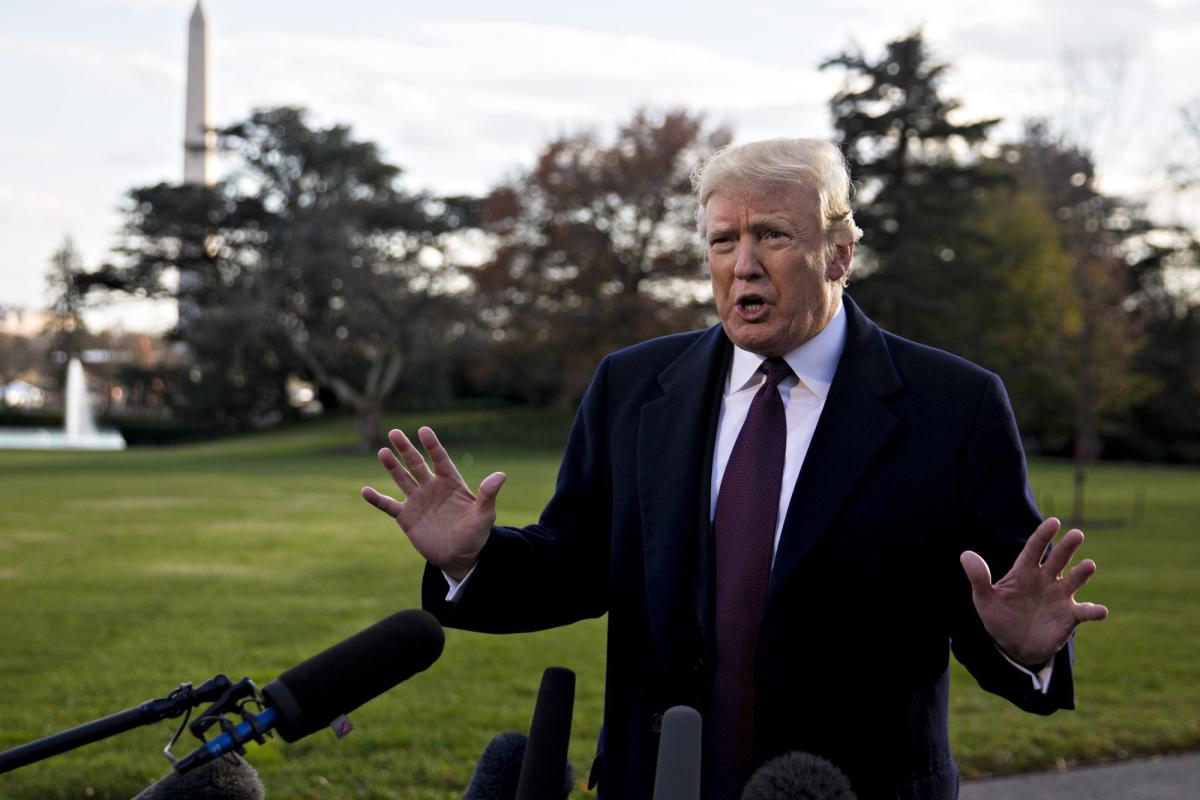(Bloomberg) — Donald Trump got the court-ordered assessment he wanted from documents seized from his Mar-a-Lago home, as well as his preferred choice of a so-called special master to carry it out. But less than a month later, the former president has complaints about how that review is shaping up.
Most read by Bloomberg
Trump’s attorneys this week objected to U.S. District Judge Raymond Dearie’s proposal on how his job as a special master will progress in the coming months, according to a letter they sent to the judge and made public on Wednesday. Trump objected, among other things, to Dearie’s request for his legal team to verify the government’s inventory of exactly what agents seized during the August search, how Dearie had categorized the privilege issues he was looking for, and the court for information on certain questions. of the law.
His legal team also shared new details about the amount of material seized by FBI agents from Trump’s Florida home after the presidency, and wrote in a separate letter to Dearie that they recently received from Justice Department attorneys. learned that the approximately 11,000 documents actually amount to approximately 200,000. pages. The seized material includes a mix of government archives, newspaper clippings, books and other documents, according to the government’s public inventory logs.
In dueling letters to Dearie on Wednesday, Trump’s attorneys and the Justice Department took verbal lashes out at each other, blaming them for a delay in finding a supplier to perform the critical task of converting the paper documents into shareable electronic versions. The exchange marked a tense start to a review process that is expected to take at least another two months.
The administration pushed back Trump’s objections to Dearie’s document review management plan, suggesting Trump was unwilling to fully participate in the special master’s process he had demanded.
Trump “bears the burden of proof,” government attorneys wrote. “If he wants the special captain to make recommendations as to whether he is entitled to the exemption he seeks, the plaintiff must participate in the trial,” the court said.
Trump’s attorneys accused the Justice Department’s attorneys of using “conclusive and antagonistic remarks” to allay their objections.
“DOJ continues to confuse itself with judicial authority. His comments are not an argument, but proclamations intended to expedite judicial oversight and the plaintiff’s constitutional rights,” the lawyers wrote.
Privileged information
They also told Dearie that the administration warned them earlier this week about an email that Trump’s team says should be considered privileged attorney-client communications. They wrote that this was the third example of a “failure” by a separate team of federal investigators assigned to conduct an initial scan for potentially privileged material.
Dearie, a semi-retired Brooklyn judge, is tasked with overseeing a review of nearly all of the more than 11,000 documents seized from Mar-a-Lago by the FBI on Aug. 8. A federal appeals court previously sided with the government and removed about 100 documents with classified markings from the review.
Dearie will make recommendations to U.S. District Judge Aileen Cannon about whether any of the documents should be covered by legal protections, such as privileges for attorney-client communication or for executive branch deliberations. He proposed a schedule for Trump’s legal team and the Justice Department to submit batches of documents to him on an ongoing basis if they disagree on how to categorize them. He wants a final log before October 28 and has to finish his work by November 30.
Dearie’s mandate from Cannon — the judge who will ultimately decide whether to accept Dearie’s recommendations — also includes affirming that the administration’s description of what they took from Trump’s Florida home “represents the full and accurate extent” of what was actually seized.
The Justice Department broadly accepted Dearie’s proposal to proceed with the review, but did ask for a slight extension of his deadlines for the administration to submit documents to Trump’s special captain and legal team. The DOJ blamed Trump for the delay, writing that all five suppliers they suggested to assist in the assessment were “unwilling” to enter into a contract with the former president.
Unwilling sellers
The government’s letter did not state why the sellers were unwilling to enter into a contract with Trump. The problem with finding a third party to scan and upload the documents in question prevented the DOJ and Trump from meeting a deadline for selecting a supplier on Tuesday, the Justice Department said in its letter.
Trump’s attorneys replied that suppliers had turned down the job because the “expedited deadlines” the administration asked for were not realistic given the amount of documents. They accused the government of “joyless dismissal of practical experience” in proposing deadlines for the production of documents to the court.
DOJ told Dearie that the government could take charge of the contract process and likely find a willing seller quickly, and asked the judge to extend the selection deadline to Thursday.
Trump would still be responsible for paying the outside company. “The government expects the claimant to pay the seller’s invoices immediately when they are issued,” the Justice Department said in the letter.
DOJ and Trump attorneys have jointly asked Dearie to extend the deadline for the seller to complete production to early October “in light of this substantial change in the contracting party with the seller.”
The case is Trump v. USA, 9:22-cv-81294, US District Court for the Southern District of Florida (West Palm Beach).
(Updated with additional information from new court files on Thursday.)
Most read from Bloomberg Businessweek
©2022 Bloomberg LP

